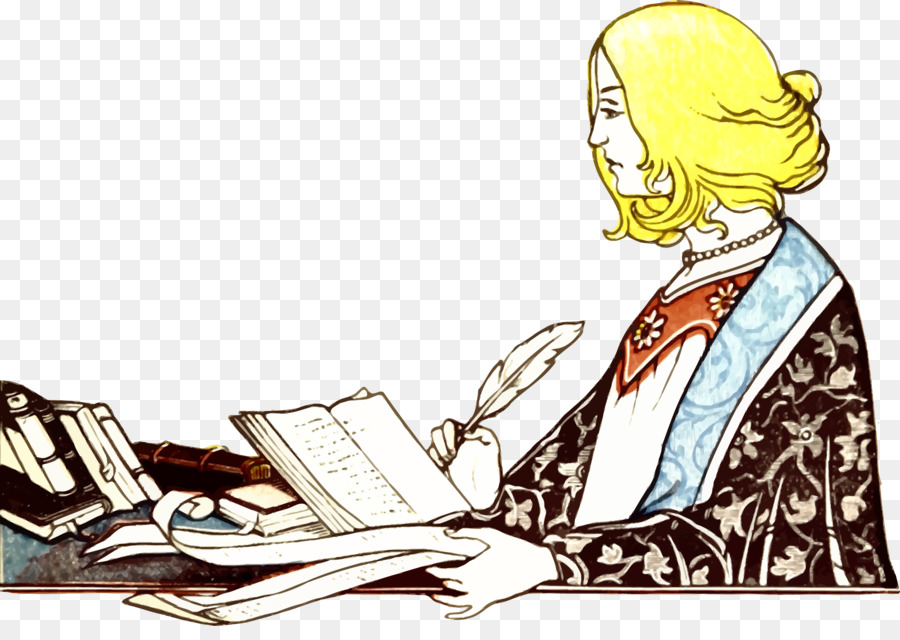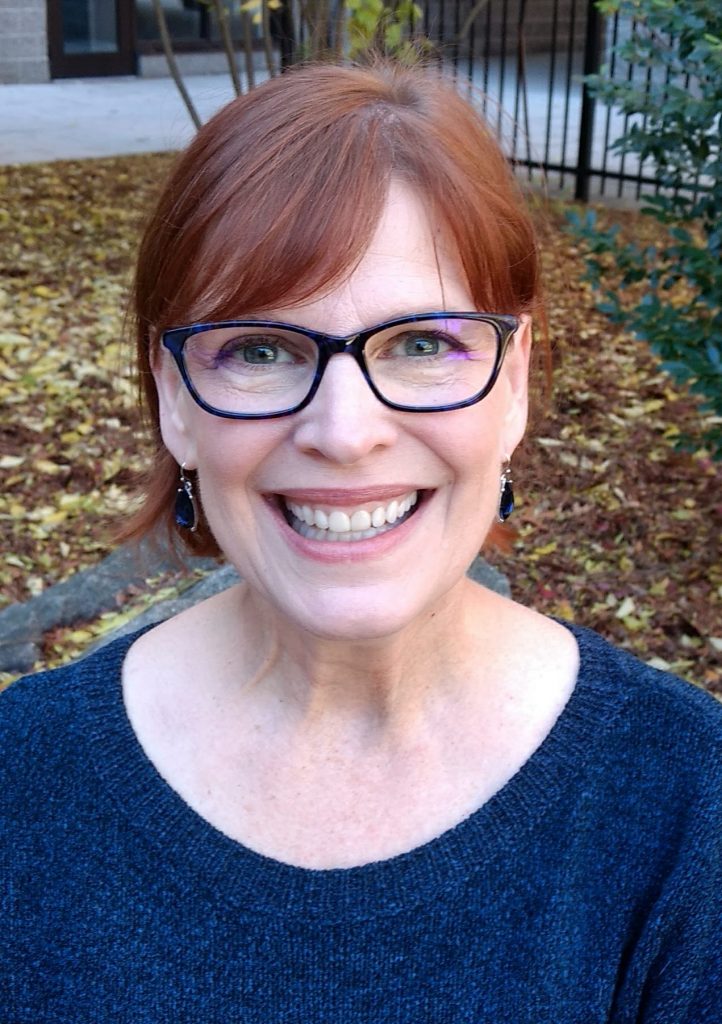In a program note for his play The War and Walt Whipple, now running at the Majestic Theater, author/director Danny Eaton describes the play’s page-to-stage gestation. First, “a few friends” saw a draft and offered comments, leading to a staged reading with audience feedback, followed by final revisions and on to opening night.
That term “staged reading” can mean anything from actors reading from scripts on music stands to basic blocking with stand-in furniture. Play readings are increasing in popularity, becoming a regular feature at some area theaters, including Ghost Light Theater’s monthly series (see below), the Northampton Playwrights Lab’s biennial festival of readings and Smith College’s monthly New Play Reading series, now in its third decade. All are aimed at taking the words off the page and into actors’ mouths – and the playwright’s ear. Many readings include talkbacks to gauge audience reactions.
This week there’s a double feature of readings at Smith, held in the Theater Department’s Acting Studio 1, aka the TV Studio. The series presents scripts by a variety of authors, including Smith undergrads and MFA playwriting candidates, as well as finalists and prize winners in nationwide contests. Most are by women playwrights, a group that is disgracefully underrepresented on this country’s stages.
In a previous column I quoted Smith professor Len Berkman, the series’ founder, who said that in a time when commercial theaters dazzle audiences with noise and spectacle – “the body electric reduced to electricity,” as he put it – low-tech (or no-tech) productions and public readings come closer to the original aim of live theater: to create a connection between actors and audience, and to stimulate the imagination. Readings and workshops, he said, “are at the forefront of our fight to keep the theater poised within the magic of live actors/live stagehands/live spectators.”
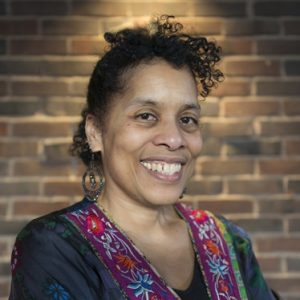 One of this week’s free readings at Smith, on Friday Nov. 30 at 7:30, is by Andrea Hairston, a Smith faculty member and founder of Chrysalis Theatre. She told me she believes that “play readings are pleasurable and stimulating on their own, as artistic events.” She stresses the value of simply hearing her words spoken aloud by live actors, who “turn the small little scrapings we put on paper into full human beings. You write the secret code and they do the magic. When they stumble on a line, you know it’s not right. They also notice things in the text that the writer didn’t notice. They guide you to your best play.”
One of this week’s free readings at Smith, on Friday Nov. 30 at 7:30, is by Andrea Hairston, a Smith faculty member and founder of Chrysalis Theatre. She told me she believes that “play readings are pleasurable and stimulating on their own, as artistic events.” She stresses the value of simply hearing her words spoken aloud by live actors, who “turn the small little scrapings we put on paper into full human beings. You write the secret code and they do the magic. When they stumble on a line, you know it’s not right. They also notice things in the text that the writer didn’t notice. They guide you to your best play.”
Hairston’s piece, Episodes from the Continuing Drama of Cinnamon Jones, Scientist, Artiste, and Hoodoo Conjurer: A Sci-fi Carnival Jam, revisits a character from her latest novel, Will Do Magic for Small Change, whom we met there as a “big and dark, theatrically challenged” middle-schooler. We catch up with her “after the Water Wars,” when Cinnamon has become “an old tech geek who lives in a dumb house on her grandparents’ heirloom farm with her dog, Bruja, and three Circus-Bots.”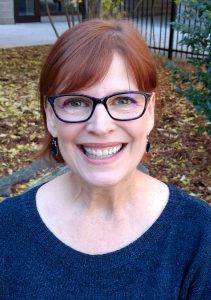
On Thursday there’s a reading of In Session, a work in progress by MFA candidate Marty Bongfeldt. a theater professional who has recently turned from performing to writing. She describes it as a stylistic departure, “not a straightforward plot-driven story” involving a woman seeking therapy in the midst of “an existential crisis.” It’s inspired, she says, by two movies – the Spanish horror film El Orfanato and the Jodie Foster thriller Flightplan, both of which “deal with a main character grappling with a version of reality that they won’t accept,” and are both about “fierce mothers who won’t stop until they’ve been reunited with their child.”
Ghost Light’s Wednesday Workshop
Ghost Light Theater’s play-reading series, held on the second Wednesday of every month at Gateway City Arts in Holyoke and featuring area actors, is focused on “newer works from local authors,” according to the series’ coordinator, Erin Fitzgerald. The term “newer” is intentional, she says, broadening the common criteria of accepting only previously unproduced plays, “making it difficult for the author to see it again and refine the piece.”
Equally intentional is the series title, Wednesday Workshop, which implies not just presentation but interaction – “an opportunity for theater creators from across the Pioneer Valley to meet and work together,” Fitzgerald adds.
Indeed, that social/networking aspect is key. “People that have participated in the program often say they enjoyed the opportunity to collaborate with actors and directors who have long been on their radar, but they might not ordinarily have crossed paths with,” Fitzgerald told me. A related objective is building “this collaborative artistic community by providing a regular venue for theater creators from multiple disciplines to make connections and discuss their work” – a meeting-place that’s enhanced by Gateway’s bistro and bar.
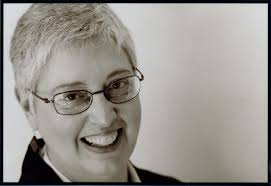 Next month’s Wednesday Workshop, Dec. 12 at 7 pm, features The Summer Dress, by Haydenville-based author Ellen Wittlinger. She told me she was a playwright before launching a successful career with Young Adult novels – 17 to date, garnering awards and best-of lists – and recently decided to return to writing for adults, and to playwriting.
Next month’s Wednesday Workshop, Dec. 12 at 7 pm, features The Summer Dress, by Haydenville-based author Ellen Wittlinger. She told me she was a playwright before launching a successful career with Young Adult novels – 17 to date, garnering awards and best-of lists – and recently decided to return to writing for adults, and to playwriting.
Moving backward and forward in time, The Summer Dress finds a 50-year-old woman reliving “jarring memories” from her past, which was “shaped and twisted by parents who made her the scapegoat for problems they couldn’t resolve with each other,” which has affected her adult life and her relationship with her 21-year-old daughter.
People interested in submitting their work to be considered for a future Wednesday Workshop can send their script(s) to gltplaysubmissions@gmail.com.
If you’d like to be notified of future posts, email StageStruck@crocker.com

